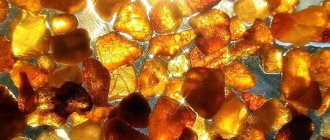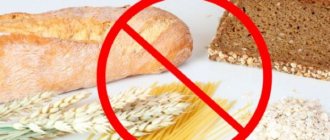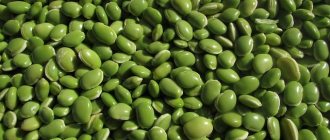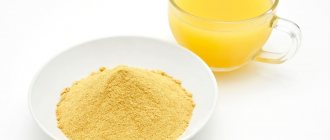After 25-30 years, many processes in the body really undergo significant changes. On the skin side, this is manifested by loss of elasticity, the appearance of wrinkles, and its color fades. This is due to many changes, in particular, to a decrease in the amount of collagen and elastin - proteins that make up a kind of skin framework; reducing the amount of hyaluronic acid - a necessary component for maintaining optimal moisture content, ensuring the correct arrangement of collagen and elastin chains, timely regeneration and maintaining skin turgor.
The presence of a sufficient amount of collagen, elastin and hyaluronic acid in the skin gives it firmness and elasticity, and a decrease in their amount leads to the opposite result - the appearance of signs of aging.
IN ADDITION TO AGE, THE REDUCTION OF COLLAGEN CONTENT IS INFLUENCED BY OTHER FACTORS:
- stress - due to the negative effect of the hormone cortisol on collagen; — excessive insolation (UV radiation) accelerates the destruction of collagen; - consuming large amounts of sugar increases the blood glucose level, which reacts with collagen and elastin, disrupting their structure and function; - hormonal imbalance; - unbalanced diet; - bad habits and addictions (nicotine, alcohol).
Thus, the first wrinkles can be noticed on the skin of the face as early as 25-30 years old.
Is it possible to turn back time and stop this process? Unfortunately no. Is it possible to slow down the aging of the skin and maintain its blooming appearance longer? With modern developments in technology, definitely YES!
The main principle of preserving and prolonging the youth of the skin is properly selected cosmetic care. The COLLAGEN collection of products was developed by the international laboratory LIBREDERM and is recommended for use by women 30+ with the first signs of skin aging. The products in this collection are aimed at maintaining a sufficient amount of collagen in the dermis and its functionality. Within 1.5 months of use, the elasticity and radiance of the skin returns, the number and depth of visible skin folds (wrinkles) are reduced.*
The collection is based on basic skin care products: COLLAGEN day cream to restore radiance and even skin color SPF15 and COLLAGEN night cream to reduce wrinkles and restore elasticity. The products in the COLLAGEN line contain the biomimetic molecule Palmitoyl glycine, which in its molecular structure is a lipoamino acid. The action of this innovative molecule is based on stimulating the production of your own collagen, improving microcirculation and protecting the collagen matrix.
Collagen
Collagen is a filamentous protein, the main building protein. It is present in most tissues of the body, forming their structure and providing strength. About a third of all proteins in the body are collagen.
The name of the protein comes from the Greek word kolla, which means “glue”. Collagen can be said to bind cells together and maintain that bond. Cells are held together by long, thin white fibers called fibrils, which are formed by collagen molecules.
There are several types of collagen with unique chemical compositions. In nature, there are at least 16 varieties of it, but they all belong to one of 4 types. The human body contains mainly types I, II and III, of which I is the most common (about 90%). Type I fibers are the strongest and most elastic.
The next most popular type in our body is collagen III, found in the skin, muscles and intestinal walls. Consists of thinner and more stretchable fibrils.
Type II collagen is found in cartilage tissue and the vitreous body. It consists of loose fibers.
Type IV collagen can also be found in the human body. It makes up the deep layers of the skin and is also a building block for the lens of the eye. The shape is a thin lattice network.
Functions of collagen:
- Strengthening bone and cartilage tissues, as well as ligaments.
- Relieve joint pain, relieve inflammation.
- Regulation of muscle nutrition and acceleration of muscle growth.
- Maintaining the health and beauty of skin, hair, nails, teeth.
- Formation of the walls of veins and capillaries.
There are also suggestions that collagen stimulates healthy bowel function, reduces anxiety and improves mood, helps with weight management and is useful as a preventative against cardiovascular problems.
The amount of endogenous collagen in the body decreases significantly with age. The synthesis of the substance slows down, and the fibrils begin to break down faster. After 25-30 years, the process of collagen destruction becomes more rapid than synthesis. Chronic stress, bad habits and poor ecology aggravate the situation. Changes are also reflected in appearance: tissues lose smoothness and elasticity, skin becomes thinner, and wrinkles appear.
Collagen can additionally be obtained from animal foods.
Food sources of collagen:
- meat, fish, seafood;
- gelatin;
- bone broths;
- egg white.
You should know that sufficient consumption of vegetables and fruits (which do not contain this substance) has a beneficial effect on its production processes due to the content of amino acids and vitamins in them.
The following signs may indicate a lack of collagen:
- Problems with bones and joints appear: bones become brittle, joints lose mobility.
- Deterioration of skin condition: sagging, dryness.
- Brittle nails and hair.
- Muscle weakness.
- Fatigue.
- Tooth decay.
Collagen can be taken in the form of dietary supplements as part of various vitamin and mineral complexes. For example, in combination with hyaluronic acid and vitamin C. The optimal combination of these three elements is in the dietary supplement Hyaluron Complex No. 30 from CONSUMED.
The preventative daily dose of collagen for an adult is 5 g.
COLLAGEN day cream to restore radiance and even skin tone SPF15
The COLLAGEN collection day cream also includes a collagen-elastin complex. It forms a breathable matrix on the skin, due to which transepidermal water loss is reduced, the skin is better saturated with moisture, becomes firm and elastic. An important component in the composition is a combination of UV filters, which protects the skin from sun rays, photoaging and the damaging effects of free radicals. The cream is an ideal skin care product for women 30+ and an excellent base for makeup.
COLLAGEN DAY CREAM FOR RESTORING RADIANCE AND EVEN SKIN COLOR SPF15 50 ML
BUY >
THE CREAM HAS A WONDERFUL LIGHT TEXTURE AND A GENTLE AROMAT.
IT IS RECOMMENDED TO APPLY DAILY IN THE MORNING TO THE SKIN OF THE FACE ALONG MASSAGE LINES.
Proper nutrition for joint cartilage
There is a lot of information about mucopolysaccharides - substances that are part of various types of connective tissue and some biological fluids. Due to their ability to retain and bind water, they serve as a natural lubricant for joints and determine the elasticity of connective tissue. Such substances in the joint cavity participate in the formation of synovial fluid, which is an intra-articular lubricant. The main representatives of mucopolysaccharides are hyaluronic acid, heparin and chondroitinsulfuric acids.
Many modern dietary supplements and medications that are used for the treatment and prevention of diseases of the human musculoskeletal system contain hyaluronic acid, glucosamine and chondroitis sulfate.
Mucopolysaccharides can be easily introduced into your diet through food products, for example, jellied fish, jellied meat. Even in ancient times, people knew about the healing properties of jellied meat and strong broths, since in addition to mucapolysaccharides, they contain collagen, which plays a significant role in the treatment of the musculoskeletal system.
It is also good to use seafood, animal or poultry by-products for the treatment and prevention of joint diseases and to strengthen the immune system. It should be remembered that during the cooking process there is no need to remove ligaments, cartilage, tendons, bones - these are the main parts rich in mucopolysaccharides. Various jelly and fruit jellies are perfect as a dessert (gelatin also contains mucopolysaccharide).
Calcium and phosphorus are also needed to strengthen bones. These elements are found in the right quantities in sea fish and seafood, for example, shrimp, sardines, mussels, herring, mackerel. Quite a lot of calcium is found in dairy products such as cheese and cottage cheese.
Raw vegetables contain a large amount of vitamins that are necessary for the synthesis of cartilage tissue. It is better to use vegetable oils as a dressing, which have an anti-inflammatory effect.
To prevent excess salts from accumulating in the joints, it is necessary to drink only purified or still mineral water and eat soy products. It is contraindicated to eat smoked meats, fatty meats, beans, dried fish and marinades. It is beneficial to drink a glass of grapefruit juice daily. It is imperative to replace smoked dishes with baked ones in foil, fried ones with stewed ones, and high-calorie carbohydrate sweets with fruit jellies, fruit drinks or jelly.
By adhering to the principles of proper nutrition, you can saturate your body with healthy vitamins and minerals and thereby avoid weight gain, and the mucopolysaccharides obtained from foods will become an excellent nutritional cocktail for cartilage and joints.
Author: K.M.N., Academician of the Russian Academy of Medical Sciences M.A. Bobyr
Collagen is needed for healthy hair and nails.
Beautiful hair is the dream of every woman and many men. Also, most of us pay a lot of attention to nail care. Not a single vitamin or health-improving preparation will be as effective as the “building” material – collagen, which is an important component of our hair and nails. Collagen for hair may be in short supply, since its consumption by the body is high, and it comes in fairly limited quantities. In this regard, the hair becomes brittle, faded, and the nails become brittle and vulnerable to infections.
Collagen for women is the first assistant in the fight against wrinkles. By the way, do you know why women age earlier than men? Due to the density of collagen in the skin. Unfortunately, after age 25, collagen production begins to decline. After 50 years, losses become more intense and can reach up to 10% per year. After 70 years, this figure is already about 40%.
Products that promote collagen synthesis in the body
Vegetable and animal oils
Oils of plant and animal origin are a supplier of polyunsaturated acids for humans and help in the synthesis of connective tissue.
To produce collagen, the body needs vitamin A, which is found in:
- fatty meats,
- fish liver,
- egg yolks,
- butter and vegetable oils.
Juices
Together with juices, a person receives the entire complex of vitamins that are responsible for the production of collagen. Eating fresh fruits provides a full range of vitamins: A, B, C, D, E. Despite the fact that plant foods do not contain collagen, these products are necessary for its synthesis.
You should pay attention to juices from:
- citrus fruits,
- apples,
- kiwi,
- peaches
Nuts
Nuts are a source of lysine and microelements that promote collagen production.
Nuts contain:
- copper,
- manganese,
- selenium.
Like sea fish, nuts are a source of omega fatty acids, which are involved in the process of building connective tissue.
Porridges and cereals
Whole grain cereals and porridges are the basis of a healthy diet. They are rich in vitamins and microelements.
The diet should contain:
- rice,
- pearl barley,
- buckwheat,
- oatmeal,
- millet.
Vegetables
For proper nutrition, vegetables and greens must be present in your daily diet. They promote active collagen production, moisturize the skin and improve its elasticity.
Should be used:
- broccoli,
- cauliflower, white cabbage,
- spinach, salad,
- celery,
- beets,
- parsley, cilantro, dill,
- Bell pepper,
- tomatoes.
Legumes:
- green pea,
- white and red beans,
- beans,
- lentils.
Lutein, an essential pigment for collagen synthesis, found in yellow and orange vegetables:
- carrots,
- pumpkin,
- corn.
Fruits and dried fruits
Fruits, fresh and dried, should be present in the daily diet. The daily intake of fresh fruit is approximately 300 to 600 grams.
In winter, you can replenish your supply of vitamins and minerals with dried fruits. It is useful to eat jelly, gelled desserts made from fresh and dried fruits.
Berries and dried fruits
Blueberries are recognized as the healthiest berry. It restores youth and radiant appearance to the skin, improves vision, thanks to the vitamins and microelements it contains.
No less useful will be:
- figs,
- grape,
- plums
Berries do not lose their usefulness in the form of dried fruits:
- dried figs,
- prunes,
- raisin.
During the cold season, it is useful to eat dried fruits and compotes made from them.
Milk and dairy products
Dairy products are responsible for supplying the body with vitamins A and D, which are necessary for the production of collagen. The best way to replenish your daily collagen intake is by eating fish or meat aspic , jellied meat or jelly desserts.
Collagen and aging
As we age, collagen fibers become thicker and their number and elasticity decrease. As a result, the structure of the collagen matrix is disrupted, the moisture content in the intercellular substance of the dermis decreases, and the skin loses firmness and elasticity due to the accumulation of inelastic collagen, especially after menopause. During menopause in women, collagen synthesis decreases, with a decrease in its content of approximately 5% per year. Within 5 years after the onset of menopause, the skin loses approximately 30% of its collagen. With age, the intracellular concentration of enzymes responsible for collagen degradation (lysylhydroxyproline transferase) increases. It has also been proven that during menopause, the concentration of skin collagen correlates with the degree of demineralization of bone tissue. A decrease in collagen synthesis affects the degree of polymerization of glycosaminoglycans and the synthesis of hyaluronic acid, which leads to a decrease in turgor and hygroscopic properties of the skin (the ability to absorb moisture from the environment). Studies have shown thinning of the epidermis with a decrease in estrogenic influence and a decrease in keratinocyte activity, as well as changes in the microvasculature of the skin.
Clinically, skin aging is manifested by a decrease in elasticity (skin turgor). Particularly characteristic is a progressive increase in extensibility associated with loss of elasticity. The result is wrinkles, dryness and atrophy, uneven pigmentation associated with increased secretion of IL1a in keratinocytes. The first signal that collagen production is impaired is the appearance of non-expressive wrinkles. If nasolabial wrinkles have already appeared, it’s time to sound the alarm. Changes in skin appendages (hair loss and fragility, nail involution), decreased secretory activity of the sweat and sebaceous glands are also characteristic age-related changes associated with a deficiency of collagen and hyaluronic acid.
Lack and excess of collagen in the body - consequences
A lack of collagen in the body will primarily affect its appearance:
- rapid fading of the skin, appearance of fine wrinkles;
- dry body skin;
- dull, weakened hair;
- brittle nails.
What happens inside the body when there is a lack of collagen:
- blood vessels lose elasticity;
- cartilage tissue wears out quickly, joints become less mobile;
- weakening of bone tissue occurs;
- muscle tone decreases.
Excess collagen is not talked about as often as lack of it. Oversaturation of the body is often encountered by professional athletes and athletes who actively take collagen supplements in the form of powders or capsules.
With frequent use of such supplements, the organs responsible for processing and excreting everything that enters the body - the liver and kidneys - are primarily affected. Excess protein in some cases leads to the need for an organ transplant.
A diet consisting only of protein foods can also be harmful to health. In addition to the necessary protein, large amounts of cholesterol and fat come from animal food, which contributes to the occurrence of atherosclerosis.
For normal collagen production, a balanced diet is required, which will supply the body with the necessary:
- vitamins,
- proteins,
- microelements.
Protein products should be present in the diet, but plant foods should also be consumed. A deficiency, like an excess of protein in the body, is equally harmful. You should not neglect the rules of nutrition if there is a lack of protein, so as not to cause serious disruptions in the functioning of important organs and not worsen your own health.
Collagen in animal products
Which foods have the most collagen? Of course, it is found in large quantities in meat. Choose any meat, but watch the fat content so as not to exceed the required amount of polyunsaturated fats. So, a lot of collagen is found in such types of meat as:
- beef,
- turkey,
- pork,
- mutton.
Poultry meat (duck, chicken, goose), as well as rabbit meat, contain less protein.
It is important to cook the meat correctly. The record-breaking dishes for collagen content are bone broth, jellied meat and aspic. You can add offal to them (pork or beef cheeks, ears, legs). In order for the broth to be maximally enriched with protein, it should be boiled for up to 12 hours, and during cooking, add a few tablespoons of lemon juice.
Collagen breaks down into gelatin during cooking. You can also add gelatin in bags to the broth if you are confident in its quality. Packaged gelatin is also mixed with juices to create jellies or smoothies. To satisfy the body's need for collagen, jellied meat or bone broth should be consumed as often as possible, up to 6-7 servings per week.
Once in the gastrointestinal tract, collagen first breaks down into amino acids and only then is absorbed into the bloodstream from the intestines and used to build its own protein. Thus, if there are digestive problems or dysbiosis, it will be extremely difficult for the body to absorb the necessary substances. In addition, meat dishes contain a lot of sialic acid, which makes digestion difficult. To neutralize it, serve herbs and vegetables with the meat.










